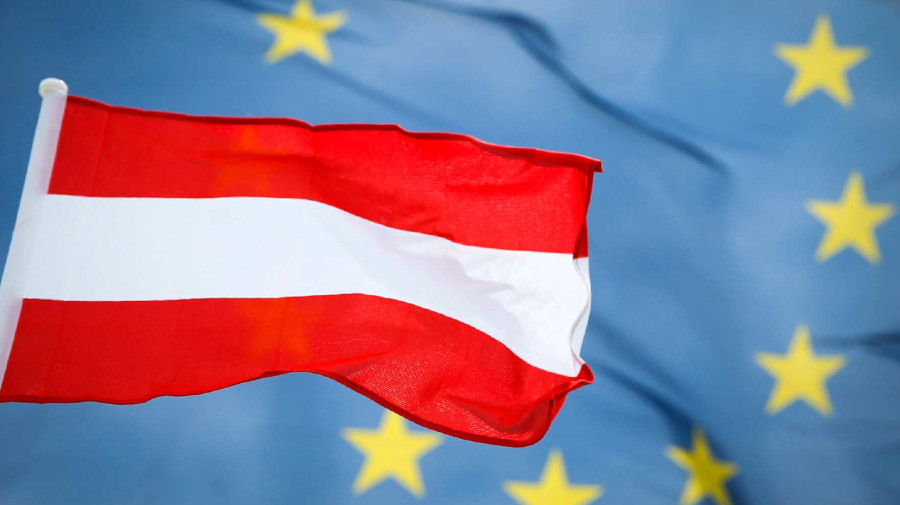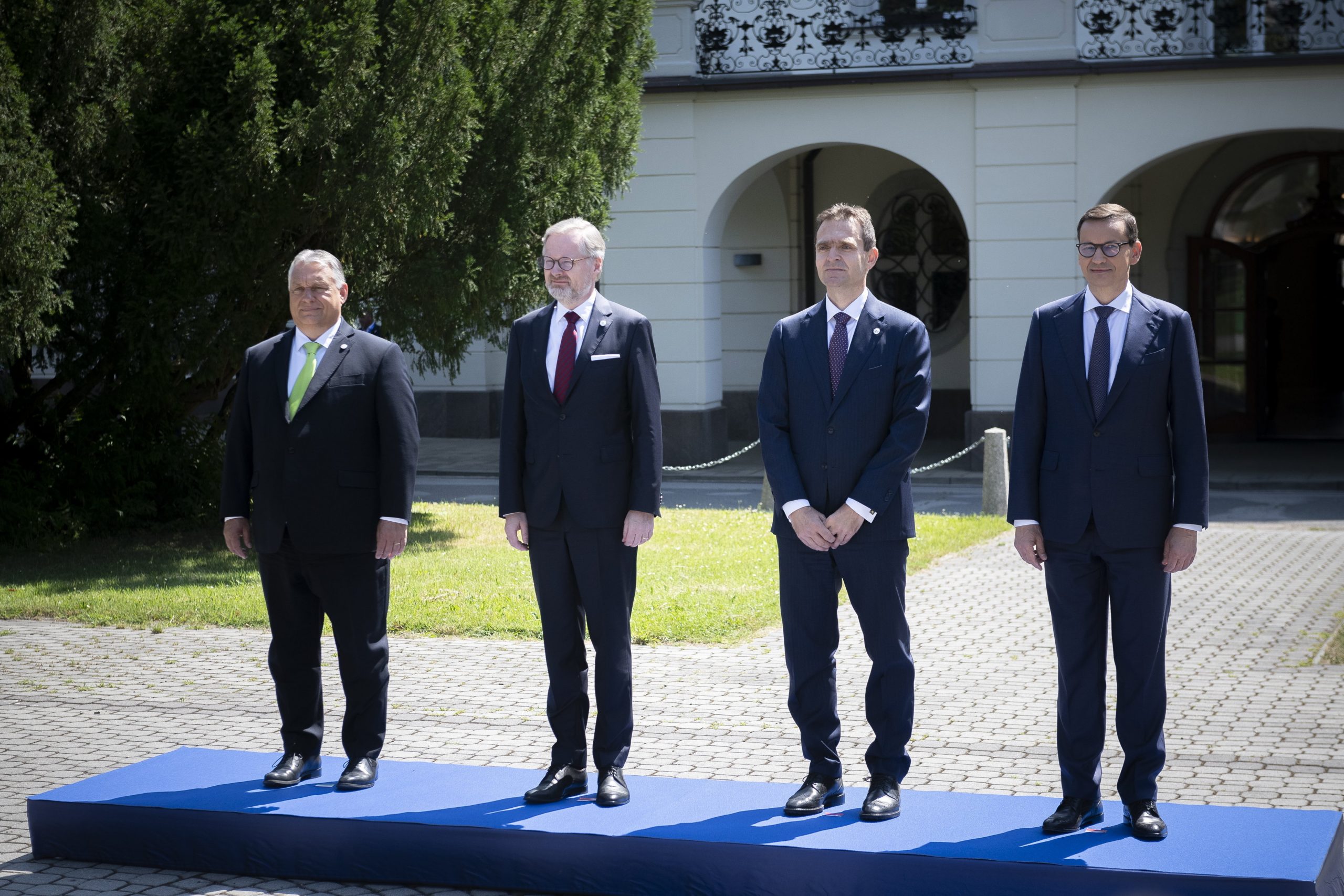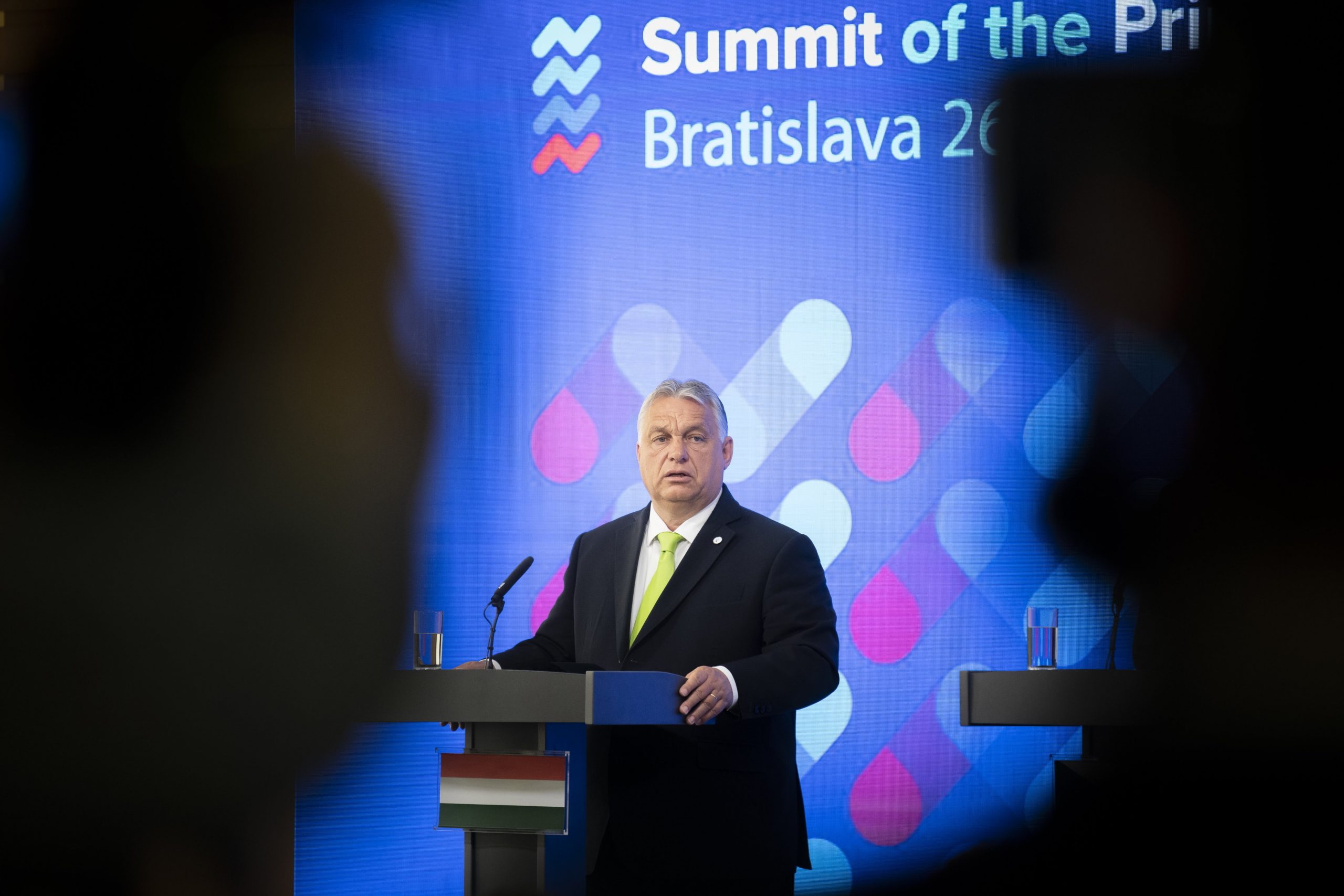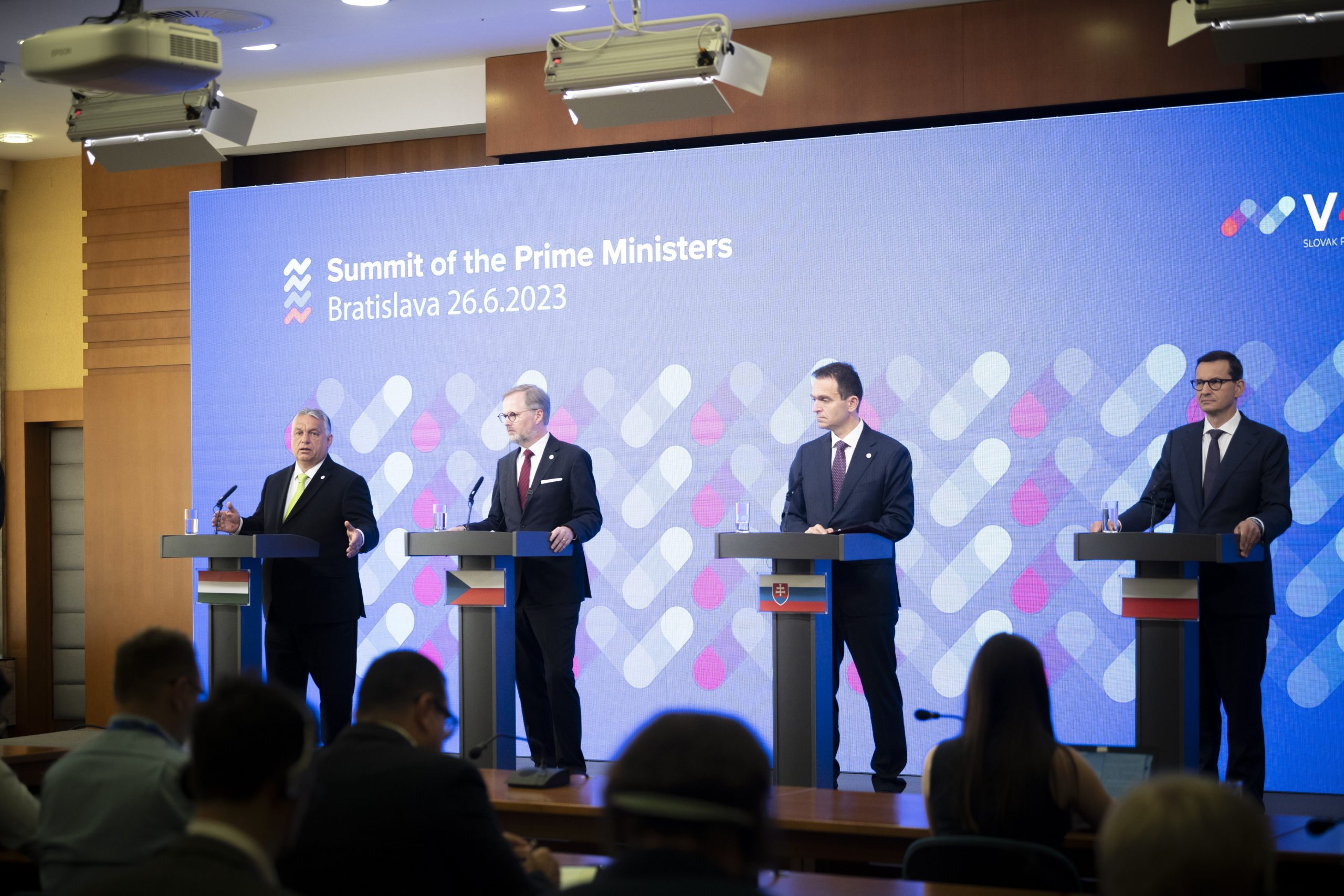
Most recently, the Austrian chancellor said that the use of existing financial funds should be a priority for the European Commission before increasing the amount of money to be paid in.Continue reading

There is a solution to migration, but the European Union does not want to implement it, Prime Minister Viktor Orbán said at a joint press conference in Bratislava on Monday after a meeting of the prime ministers of the Visegrád Four (Hungary, Slovakia, the Czech Republic, and Poland).
On the issue of illegal migration, the Hungarian Prime Minister said that Hungary’s position remains unchanged. The solution – which is also laid down in Hungarian law – is that if someone submits an application for entry to the territory of the EU, that person must be physically outside the European borders while the application is assessed.
“If we were to say that only those who have undergone the procedure and have received permission from a Member State to enter the EU would be allowed to do so, we would have gotten over this mess,” Viktor Orbán argued. He added that the EU is not willing to take this decisive step, and unfortunately the European Commission’s new migration proposal has not achieved this goal either.

Prime Minister Viktor Orbán. Photo: MTI/Miniszterelnöki Sajtóiroda/Benko Vivien Cher
Only a few weeks ago, the EU interior ministers adopted a proposal on a migrant quota. The issue of the distribution of illegal immigrants was raised as far back as in 2015, but several Member States, including the V4, opposed it and the pro-migration forces were unable to push it through in the EU. The situation has changed a lot since then, with the Visegrád Four effectively becoming dormant after the replacement of former prime ministers Andrej Babis (Czech Republic) and Robert Fico (Slovakia).
At the moment, the Hungarian and Polish governments, led by the same leaders in the last couple of years, Viktor Orbán and Mateusz Morawiecki, are still fighting to strengthen the alliance, but they are less effective without the former allies in Bratislava and Prague.
Both the Czech Republic and Slovakia currently have governments that are fully aligned with the White House and the EU’s common foreign policy, thus regional cooperation is bearing only secondary attention.

L-R: Hungarian Prime Minister Viktor Orbán, Czech Prime Minister Petr Fiala, Slovakian Acting Prime Minister Lajos Ódor, and Polish Prime Minister Mateusz Morawiecki. Photo: MTI/Miniszterelnöki Sajtóiroda/Benko Vivien Cher
At the press conference, Orbán also referred to the European Commission’s proposal for a budget amendment, which they partly want to spend on the management of migration, saying that the money the European Commission is earmarking for the fight against migration is ridiculous. “I have to say that the whole proposal as it stands from the Commission is frivolous and in this form – in Hungary’s view – is unfit for negotiation,” the Prime Minister stated, adding that the Commission must come up with a serious proposal.
At the meeting of the Visegrád Four prime ministers in Bratislava, in addition to the options for dealing with illegal immigration, the situation in Ukraine and its consequences, the Western Balkans and the EU’s Green Agreement were also discussed.
Regarding the Western Balkans, Prime Minister Orbán said that he had visited several countries in the region in the past week, and was pleased to hear that there was a common view that the accession process of the Balkan countries to the European Union should be accelerated. He emphasized the need for a Balkans policy that gives a clear membership perspective to the peoples living there. He pointed out that it is unacceptable to create the feeling that Ukraine can join the EU before the countries that have been candidates for years.
On the Ukrainian war, the Hungarian Prime Minister said that the V4 discussed this issue, but it was not at the center of the common cooperation.
He added that Hungary shared the concerns about grain from Ukraine. “We are in favor of grain from Ukraine reaching its destinations outside Europe, but we are not in favor of this grain staying here in Hungary, for example, and destroying the entire Hungarian grain market,” Orbán stated.
The meeting of the V4 prime ministers in Bratislava was one of the final events of Slovakia’s V4 presidency, which will end in June. The Czech Republic will take over from Slovakia as the next country to hold the presidency of the Visegrád Group in July.
Featured photo via MTI/Miniszterelnöki Sajtóiroda/Benko Vivien Cher